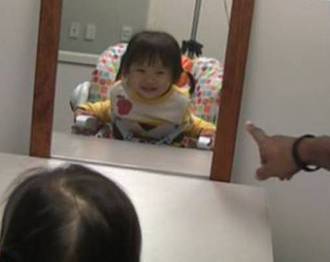Exploring self-regulation
|
How does the presence of a mirror affect the actions of toddlers? In everyday life, young children are constantly given instructions or rules which they are expected to comply with. Often this means the child has to do something they don’t want to do in order to comply with the instruction. Check out our research and findings.
|
You might also be interested in ...
Why do preschoolers lie?
Children can start lying as young as two years old. We might not like it when our kids lie to us, but believe it or not, lying in the early years is a normal part of your preschoolers development involving independence, emotional regulation and putting things into perspective. Find out more about their reasons for lying, dealing with their lies, setting an example and continued lying.
6 tips on Tummy Time for babies
Not all babies like their first few sessions of tummy time, but with your encouragement it’s an early developmental milestone they’ll start to enjoy in their own time. However, the sooner you start, the quicker they will adapt. Check out our useful tummy time tips.







Check out our research and findings.
What we wanted to know: In everyday life, young children are constantly given instructions or rules which they are expected to comply with. Often this means the child has to do something they don’t want to do in order to comply with the instruction. The ability to do this is known as effortful control. Are children more likely to follow rules if they can see themselves performing certain behaviours?
What we did: In this study, we tested effortful control in 2- and 3-year-old children, by asking the children to wait until the experimenter returned (1 minute later) before opening a special toy that was in front of them. Half of the children had a mirror in front of them and the other children had no mirror. Based on previous research, we thought that the presence of a mirror might help ‘remind’ children of the rule to not touch the toy.
What we found:
Preliminary findings show that 2-year-olds spent less time looking at the mirror than 3-year-olds; and 3-year-olds were less likely to touch the toy than the 2-year-olds.
We were surprised to find 3-year-olds touched/opened the toy more when the mirror was present than when the mirror was absent. We are continuing to investigate why this might be the case.
Interestingly, self-talk came out quite a bit in the data. Some children talked about the toy while they waited, while other children talked about other things. We are currently doing further coding to see if the children who waited to touch the toy were the ones who talked about something else (as a means of distraction).
Check out our other Hot Topics on:
Source: This article was written by Early Learning Lab